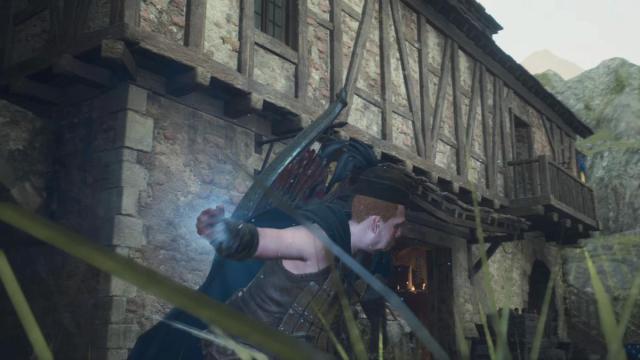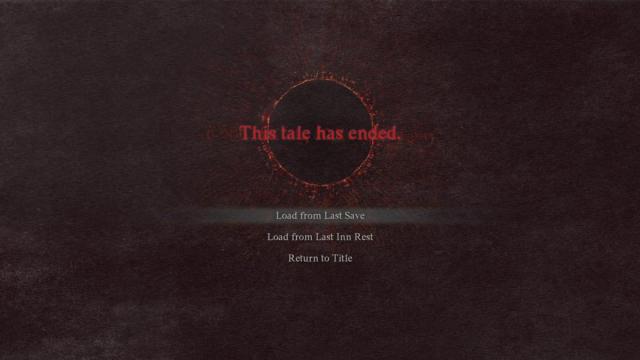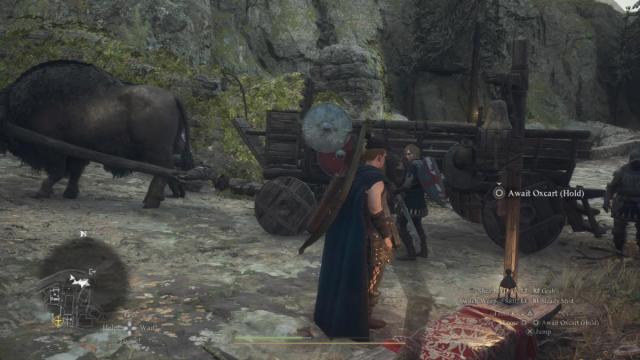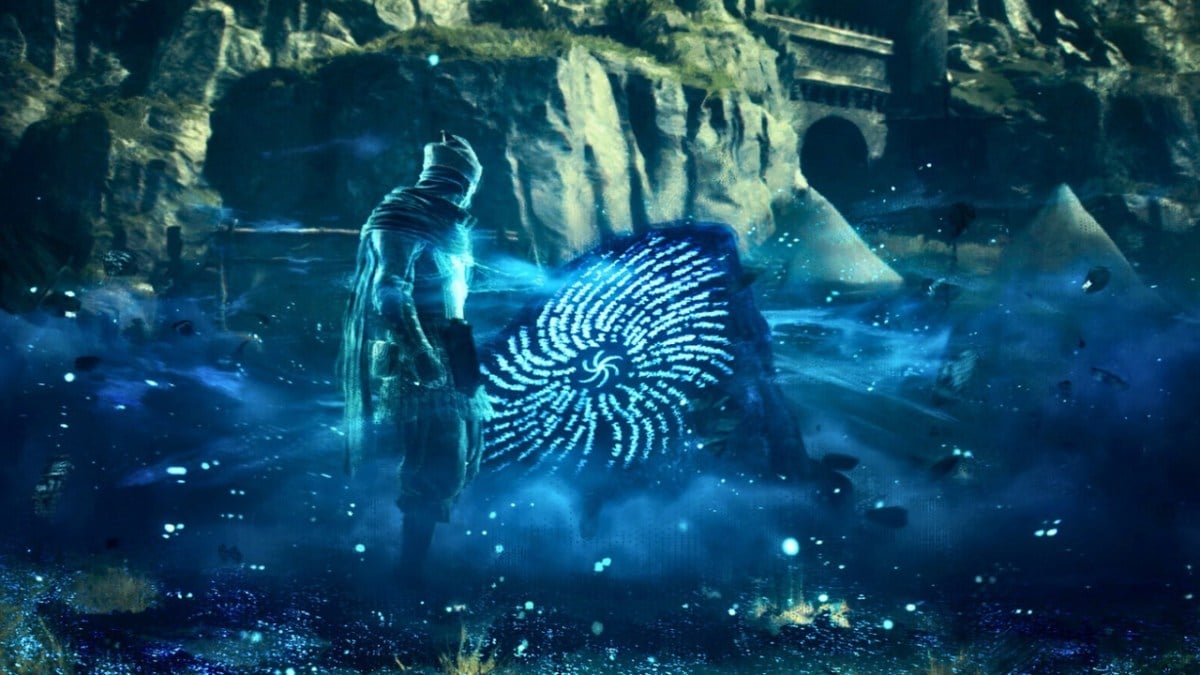Dragon’s Dogma 2 starts out like a typical open-world action RPG, but soon gets very, very weird. This article could well follow a similar pattern: I’m about to try to make sense of two totally separate experiences, neither of which make any sense, by comparing them to each other. There’s a chance I might only succeed in making things worse.
Bloated bureaucracy is everywhere, so you don’t have to live in a former socialist republic to relate to that side of the comparison I’m attempting to make. That said, there’s something special about their bureaucracy. And, for reasons that may or may not be about to become clear, playing Dragon’s Dogma 2 repeatedly reminds me of experiences I’ve suffered at the hands of my adopted country, a former socialist republic that shall remain nameless.
It’s hard to pinpoint exactly what Dragon’s Dogma 2 and former socialist republics have in common, but I’d say it’s something to do with a belief that “the old ways” mustn’t be abandoned at any cost, no matter how redundant, irrelevant, or counterproductive they are. In the latter case, this seems to be rooted in a distorted version of socialism—meaning if the new system makes something easier, then that’s unfair to everyone who had to put up with the old one, so the new system must not make anything easier.
I suspect Dragon’s Dogma 2’s product vision is founded on a similar belief. The creators of this game grew up on games that were unforgiving and punishing out of necessity because technical limitations over 30 years ago didn’t allow for conveniences like multiple save slots and fast travel. There were titles that didn’t even let you start a new game because the only way to do so was to overwrite the entire game file on your disk, so as soon as you saved, the old file literally no longer existed.
I don’t know where to (re)start

These days, such conveniences are generally considered essential quality-of-life features in pretty much every other game, but Dragon’s Dogma 2 holds the view that user-friendliness must be earned through suffering and sacrifice. You don’t get to fast travel without the use of expensive and rare consumables or without running the risk of being ambushed in your sleep by an overwhelming force of giant monsters. You do get two separate save slots, but only under the game’s own unique terms. And you don’t get the option to start a new game without complaining about it en masse until it gets reluctantly patched in.
The Load from Last Inn Rest option is exactly the kind of thing you’d find in a former socialist republic; it’s a “solution” to a problem that only exists in the first place because the system refuses to change or adapt. It’s a kind of failsafe against the fact that you can quite easily find yourself in a hopeless situation in Dragon’s Dogma 2, which is in itself a direct consequence of its insane “only one save slot” and “no fast travel” policies.
It’s a solution in name only. You have to pay in-game money to save your game at an inn, and if you accidentally load the Last Inn Rest instead of the Last Save, the game will immediately autosave, overwriting your other file and thereby casually destroying what might have been several hours of progress. Yes, it happened to me. And it didn’t need to happen. All this bullshit could have been avoided with the simple addition of multiple save slots.
It doesn’t have to be this way

Immigrants to former socialist republics and newcomers to Dragon’s Dogma 2 are often heard saying the exact same thing: “I tried to do something that I would have thought would be really simple, but it turned out that I had to jump through a series of frustrating, time-consuming hoops to get it done.”
And fans of Dragon’s Dogma 2 will respond in the same matter-of-fact way as those born into nations with exceptionally bloated bureaucracies. They’ll breezily tell you it’s always been that way but that you can do the thing you wanted to do. All you have to do is… (cue long, convoluted explanation that involves gaming the system or operating outside of it altogether.)
So, of course you can start a new game: you just have to quit, find your save file via your operating system and delete it manually, then restart Dragon’s Dogma 2 (I know the game’s been patched now, but this really was the only way for the first week after launch).
This workaround reminds me, in particular, of something I was told by an on-duty employee of the government of my adopted country. The capital city’s administrative office had a backlog of several months, so she suggested I get a fake rental contract for an apartment outside the capital. That way I’d be able to get my residence application processed within days at a much less overworked small town office. She told me this was common practice among locals.
My mouth hung open, and I stammered, just as I have done numerous times while playing Dragon’s Dogma 2. “But… but… but why? It doesn’t… doesn’t make any…”
Are you serving the system? Or is the system serving you?

If you suggested a simple, obvious solution like outsourcing a share of the capital office’s workload to the rural offices that had very little to do or just doubling the staff at the capital office, you’d be met with bemusement and surprise. It would be the same kind of bemusement and surprise that Capcom expressed when players demanded a New Game option in Dragon’s Dogma 2. Why apply a simple solution when a convoluted workaround will do?
And I’ve really just picked out the most obvious, most blatant examples. Dragon’s Dogma 2 constantly subjects its players to frustrating, tedious nonsense without any reasonable justification. Sometimes, it’s the small things, like the way you occasionally have to wait for an oxcart at the oxcart station when there’s already an oxcart at the oxcart station. And sometimes it’s the slightly larger things, like the inconvenience of having to go to an in-game administrative unit to spend Discipline Points when it could surely just be done on the Skills screen. Whatever I tried to do in Dragon’s Dogma 2, I was plagued by the sense that I was serving the system and not the other way around. The very same sense I sometimes get living in… let’s call it Former Socialist Republic X.






Published: Apr 9, 2024 11:23 am